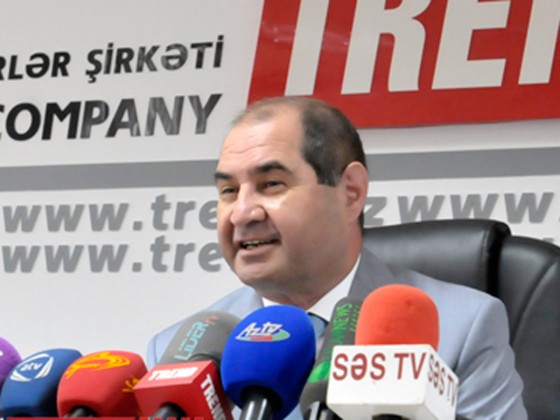
Mubariz Ahmadoglu, Chairman of the Centre for Political Innovation and Technologies of Azerbaijan
Yerevan tries to orchestrate the Cooperation Council between the European Union and the Republic of Armenia against anticipated adoption of two resolutions on the Nagorno-Karabakh conflict by the Parliament Assembly Council of Europe (PACE). The information disseminated on the sixteenth meeting of the Cooperation Council needs further clarifications.
Expecting the discussions at the PACE, we would like to recall several consonant statements:
First, the term "occupied territories" was officially used in the statement by the Co-Chairs of the OSCE Minsk Group on the twentieth anniversary of the ceasefire agreement, on 11 May 2014 (third paragraph). There are several other documents by the Co-Chairs of the OSCE Minsk Group which employed the term ‘occupied territories’ (http://www.osce.org/mg/118419).
Second, the final document on the sixteenth meeting of the EU-Armenia Cooperation Council also employs the term "international border between Armenia and Azerbaijan" (http://www.consilium.europa.eu/press-releases-pdf/2016/1/40802208032_en_635887490400000000.pdf)
Moreover, in the document on the sixteenth meeting of the EU-Armenia Cooperation Council, the phrase "the EU re-affirmed that the status-quo is unsustainable" was also used (http://www.consilium.europa.eu/press-releases-pdf/2016/1/40802208032_en_635887490400000000.pdf).
The argument on the OSCE Minsk Group being the only institution dealing with the resolution of the Nagorno-Karabakh conflict is also inaccurate. The OSCE Minsk Group is an institution, recognised by the international community, dealing with the resolution of the conflict, but not the only one. It cannot be the only one, because OSCE Minsk Group is held accountable by the UN and OSCE. The UN and OSCE are in position to adopt the decisions on the resolution of the Nagorno-Karabakh conflict.
Trend
